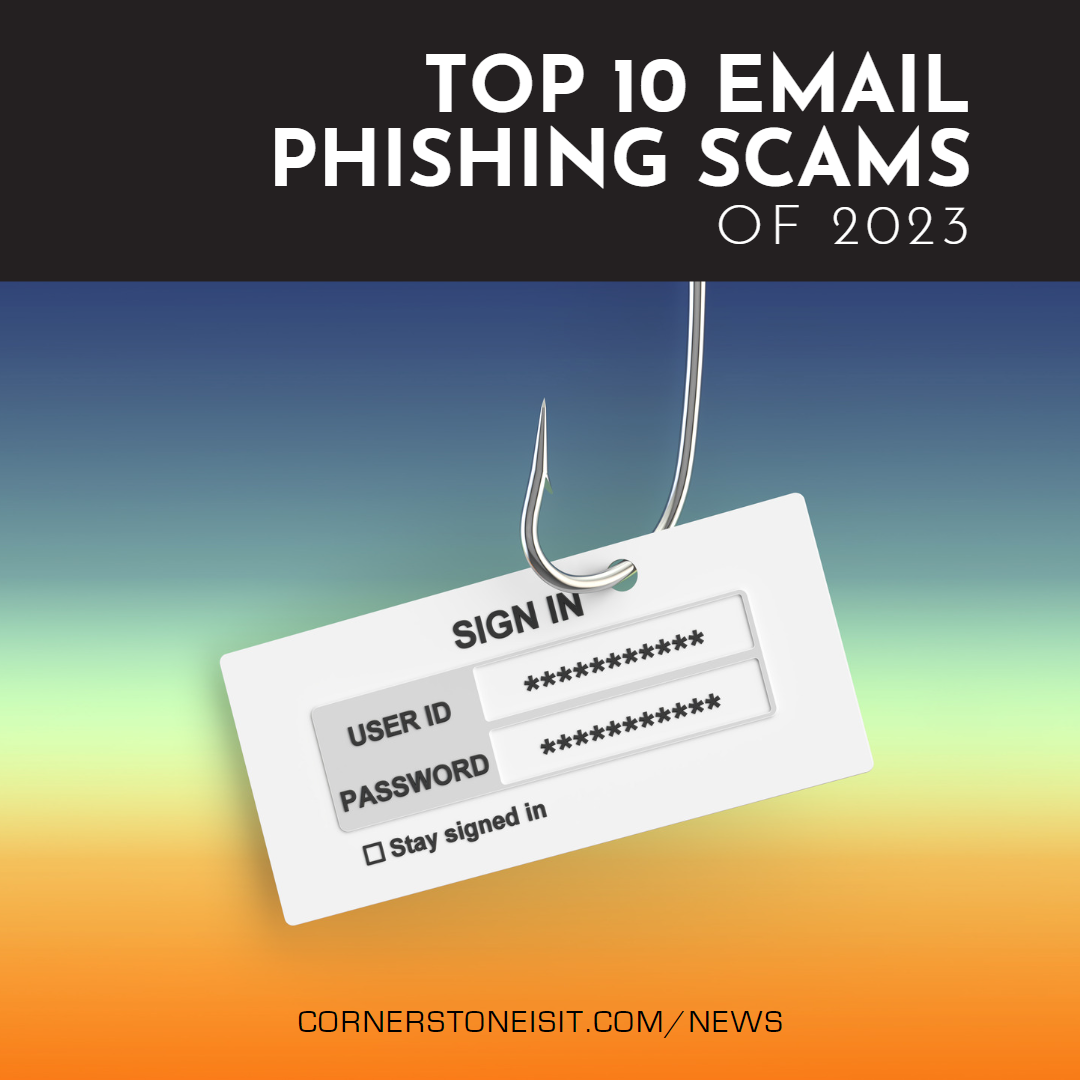
In today's digital age, email phishing scams have become increasingly sophisticated and prevalent. Cybercriminals are constantly devising new ways to trick unsuspecting individuals into divulging sensitive information or falling victim to malware. In this blog post, we will explore the top 10 email phishing scams of 2023 and provide you with essential tips to identify and protect yourself against these fraudulent attempts.
1. The friend in need: This scam preys on your goodwill by impersonating someone you know and trust. The email claims that your friend is in financial trouble and urgently needs your help. Be cautious of requests for money transfers or bank details.
2. The contest winner: Beware of emails promising exciting prizes or contest winnings. These emails typically lure you into clicking a link and entering your personal information, which can lead to device infection and data compromise.
3. The government scams: These phishing emails masquerade as official government communications, often using gov.uk addresses. They may claim to have tax updates or information about local law changes. Exercise caution with links provided and verify their authenticity before clicking.
4. The problem with your account: Cybercriminals impersonate well-known brands such as Microsoft or Google and send emails warning of expiring passwords or billing information that needs validation. Avoid disclosing private information as it can be used to compromise your accounts.
5. The scare tactic: Scammers exploit fear by sending emails claiming that a virus has been detected on your account. They may prompt you to click a link or download a virus scanner, which is, in fact, malware designed to infect your device.
6. The lost package: Phishing emails impersonating package carriers take advantage of your anticipation for a delivery. They may include tracking links or request confirmation of your delivery address. Exercise caution as these links can contain malware.
7. The boss: Targeting finance professionals, scammers send emails during the CEO's absence, urgently requesting information or money transfers. Employees may act under panic, bypassing proper protocols. Always verify such requests independently.
8. The unusual activity: Phishing emails alert you of unusual account activity and prompt you to update your password to protect against hacking. Be cautious and verify the authenticity of such emails, as providing your password grants access to personal information.
9. The "omg is this you, what were you thinking?": These emails play on curiosity and shock, enticing recipients to click a link to view an incriminating picture. Resist the temptation, as these links are used to install malware on your device.
10. Family scams: Family-related phishing scams, such as the grandparent scam or kidnapping scam, exploit emotions to extort money or gather sensitive information. Be skeptical of urgent requests and always verify the authenticity of such communications.
As technology evolves, so do the tactics used by cybercriminals in email phishing scams. Staying informed is crucial in protecting yourself against fraudulent attempts. By being proactive and mindful of potential email phishing scams, you can safeguard your personal information, financial assets, and online security in the ever-evolving digital landscape.

Leave Your Comment Here